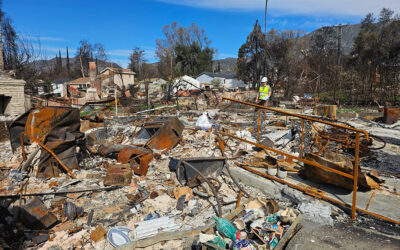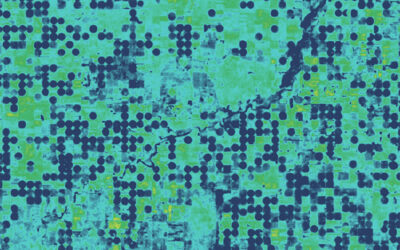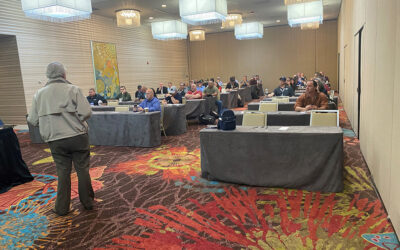Rose Shillito is a hydrologist and graduate student researcher working with Markus Berli, Ph.D., associate research professor of environmental science. Rose has worked at DRI since 2011, and she plans to defend her doctoral dissertation at UNLV and earn her Ph.D. in geosciences this fall.
DRI: In a couple of sentences, what is the ‘plain English’ summary of what are you presenting at AGU?
Rose Shillito: Fire can cause soils to become water repellent—water will not spontaneously enter the soil. We have developed a physically-based model to understand and predict the effect of soil water repellency on infiltration, thus on the potential for post-fire flooding and erosion.
(Rose was recently featured by the UNLV Foundation for her work on post-fire water repellency. Read the article here: https://www.unlv.edu/news/article/trickle-down-effect.)
DRI: What are you most looking forward to at AGU this year? What do you hope to learn, or who do you hope to connect with?
RS: At AGU, I like to get an overview of research in my specific topic, but also get a general overview of research directions and methods in my field (hydrology). I get a chance to connect with colleagues and make new connections with other researchers.
DRI: The theme of this year’s meeting is “What Science Stands For.” From your perspective, what does science stand for?
RS: Currently, to me, science is about answering questions.
Meet Rose at her AGU poster session, “Effective Infiltration Measurements for Fire-Affected Water-Repellent Soils,” happening Tuesday, December 11th during the afternoon session. (Session H23L-2548 in the program.)
This Q&A is part of a series of profiles of DRI scientists who will be participating in the 2018 AGU Fall Meeting, to be held in Washington DC during the week of December 10th. Learn more about this annual meeting of 24,000 scientists from a wide range of disciplines here: https://fallmeeting.agu.org/2018/.


